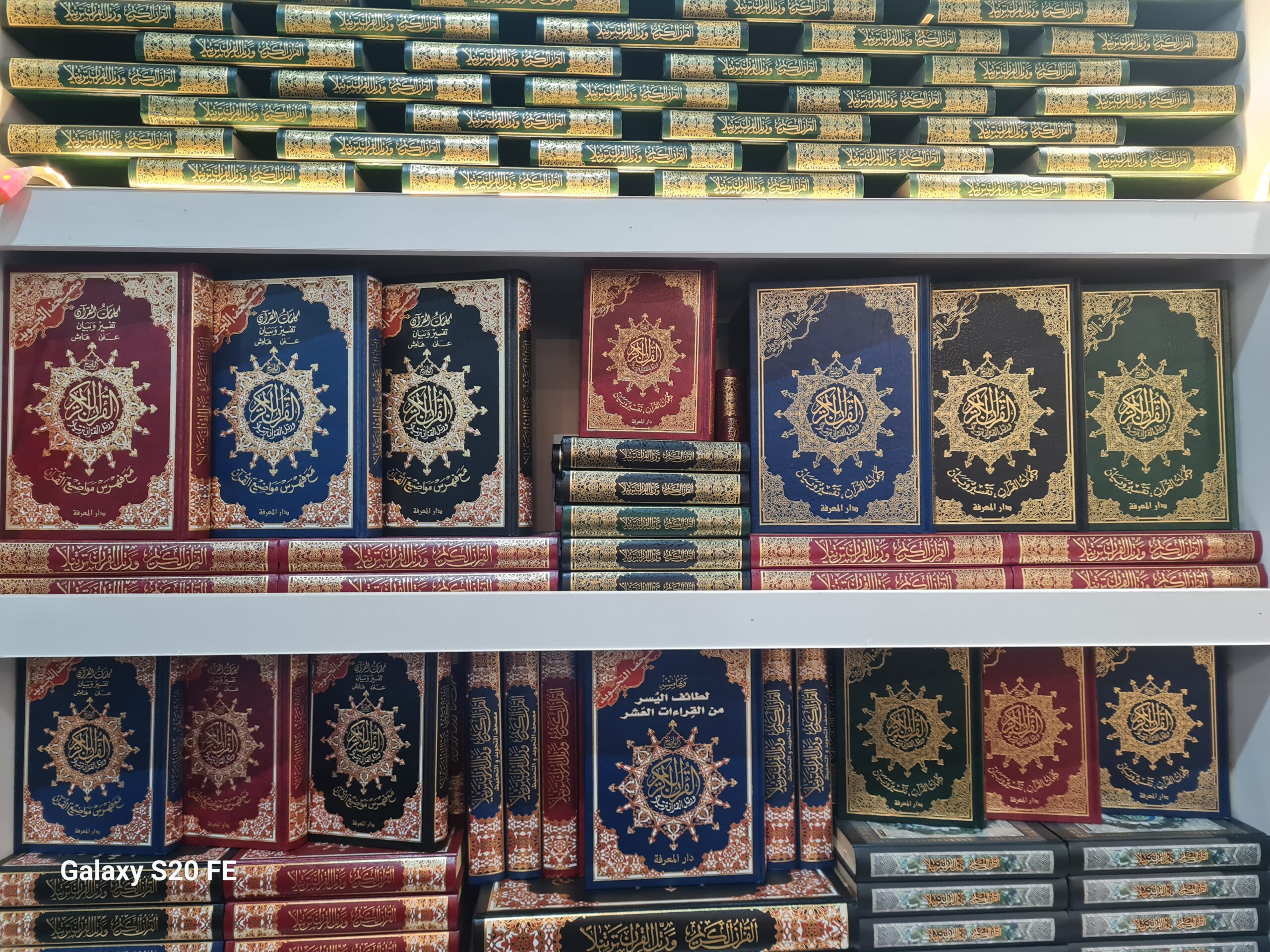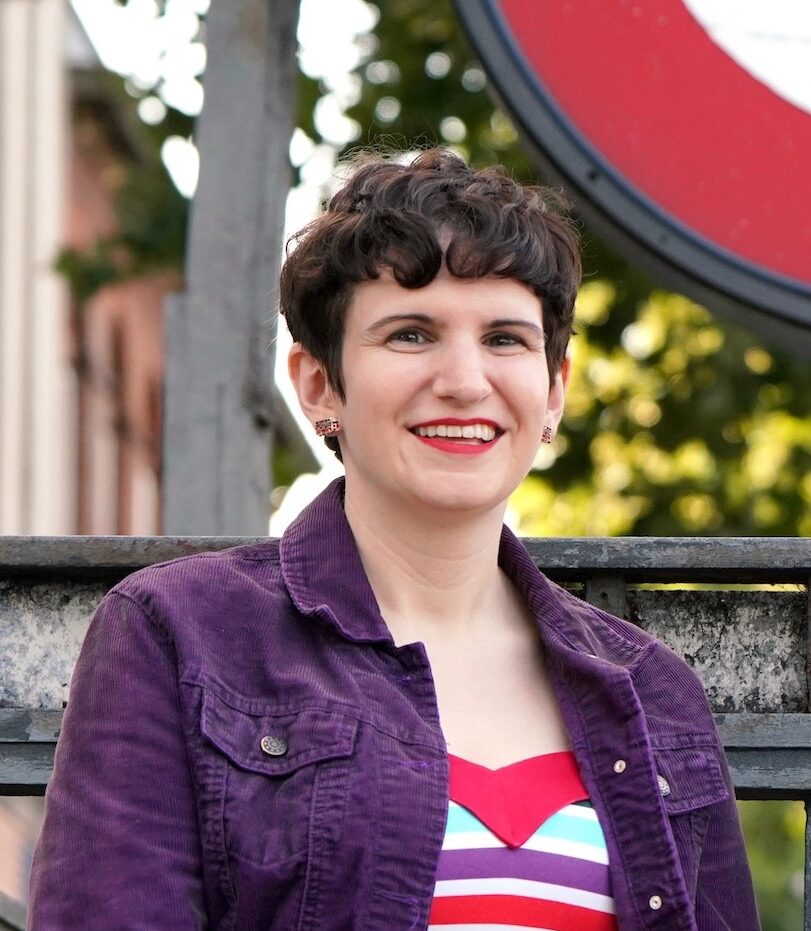The Aga Khan Library
52K Volumes.
(Increasing yearly by 600+)
90K+ E-Books
Lorem Ipsum has been the industry's standard dummy
100+
Historical Journal subscriptions
Target Audience
In the spotlight

Highlights from the Aga Khan Library Collections – Ottoman Collections (V)
Muhazarat (محاضرات) by Fatma Aliye Reviewed by Seda Karamanli In 2009, the Turkish 50 Lira note became the centre

Highlights from the Aga Khan Library Collections – Ottoman Collections (IV)
Muhayyelât-ı Aziz Efendi (مخيلات عزيزافندى) by Ali Aziz Efendi Introduced by Seda Karamanli Hidden within the notable Ottoman


Aga Khan Library at the Cairo International Book Fair 2024
Held annually at the Cairo International Exhibition Centre, from January 24th to February 6th, the Cairo International
Nullum consectetuer update
Nullum consectetuer update
Nullum consectetuer update
Nullum consectetuer update

Dr Walid Ghali
Head Librarian
Dr Ghali leads the Aga Khan Library. He is an associate professor of Arabic and Islamic studies at The Aga Khan University’s Institute for the Study of Muslim Civilisations (AKU-ISMC).
He received his PhD in Arabic Manuscript Traditions from Cairo University in 2012. He also completed coursework for a master’s degree in Islamic studies, and earned a diploma in Executive Management from the Institute of Management.
Dr Ghali coordinates and teaches the Paths to Sufism module for MA students at the AKU-ISMC, and co-teaches on other modules such as Concept of Nation in Modern Arabic Literature and Muslim Societies in a Changing World. He delivers guest lectures on Pre-Islamic Poetry and Prose Culture and Quran Recitation at The Institute of Ismaili Studies (IIS). Dr Ghali also organizes yearly short courses on Arabic Manuscript Traditions and Qur’an in Daily Muslim Practices.
He is also a member of the Editorial Board of Abdou Filali-Ansary Occasional Papers. In 2020, he was elected as a board member of The Islamic Manuscript Association.
Dr Ghali publishes in many different research areas, and gives guest lectures and presentations at international conferences. His forthcoming publication is a critical edition of previously unknown documents belonging to the leading Egyptian figure and Muslim reformer Muhammad Abduh (d.1905).

Shah Hussain
Collections Development Librarian
Shah is the collections librarian for the Aga Khan Library. He is a qualified librarian with a master’s degree in Library and Information Science from London Metropolitan University.
He is a graduate of the IIS’ Graduate Programme in Islamic Studies and Humanities. He also holds two further master’s degrees: Social Anthropology from SOAS University of London, and International Relations from the University of Peshawar in Pakistan.
Shah’s responsibilities include collection development, reference assistance and library liaison. He is also compiling an annotated bibliography of literature on the Aga Khan Development Network.
Before becoming our collections librarian, Shah worked in many other capacities and undertook many projects in the IIS library. As Keeper of the Special Collections, he initiated and managed the microfilming and cataloguing of the library manuscripts.

Waseem Farooq
Reference and Instruction Librarian
After receiving his education in Arabic and Islamic studies from seminaries in the UK and India, Waseem achieved his BA (Honours) in Arabic with Middle Eastern and Islamic Studies from the University of Durham. He also earned an MA in Library and Information Studies at University College London, and an MA in Historical Research Methods at SOAS University of London.
He began his career in librarianship as a cataloguer of Arabic materials and leading library assistant at the British Library in 2002. He then joined the AKU-ISMC as an assistant librarian in 2005, became a librarian in 2010, and started his current position in 2021.
Waseem is primarily responsible for the acquisitions of print and ebooks, and providing information literacy training. His research interests include the history of Sufism in South Asia, early and medieval Islamic documents and sources, dialectical theology, principles of fiqh, and hadith studies.

Pedro Sanchez
Library Coordinator
Pedro holds undergraduate and postgraduate degrees in Library and Information Science from the University of Granada, Spain, and an MA in Librarianship from the University of Sheffield. He has been working in information services for more than a decade. Before joining AKU-ISMC, he worked in libraries at fine arts museums, mining and engineering companies, and medical, business and media schools.
Since 2016, Pedro has worked on improving all Aga Khan Library systems, electronic resources and digital projects. He has developed the Aga Khan Library Digital Collections platform and the Aga Khan Library website. As part of his current position, he oversees the development of the new library management system and other system migrations.
He is currently working with the Head Librarian to develop the new library strategy and oversees all library operational functions, including planning and budgeting, financial management, and policy development.
His professional interests include the marketing and promotion of libraries, librarianship advocacy and politics, bibliometrics and other impact evaluation metrics, open-source software, and open-science strategies.

Esen Kaya
Gallery Curator
Esen curates the Aga Khan Centre Gallery, and manages its artistic and engagement programmes.
She is a professional artist with a degree in Fine Art Sculpture, and postgraduate study work across drawing, painting, installation, embroidery and sculpture. She has exhibited her pieces in several collective and solo exhibitions worldwide. In 2017, she received a three-year Honorary Visiting Research Fellowship at the University of Sunderland.
Before joining the gallery, Esen worked as an educator and curator in museums and galleries across the UK. She promoted community-focused creative arts projects to facilitate access to and engagement with the arts and culture.
In 2014, Esen founded DRAWING, a series of exhibitions and events that explore the role and importance of drawing in work and everyday life. DRAWING engaged over 100,000 audience members through live exhibitions, events, creative learning and online activities. Esen continues to develop DRAWING as an online gallery.
Please contact Esen for enquiries about the Aga Khan Centre Gallery.

Ilaria Gianfranceschi
Library Assistant
Ilaria holds a BA in Languages, Cultures and Societies of Asia and Mediterranean Africa from Ca’ Foscari University in Venice. Here she specialized in Middle Eastern studies with Arabic and Turkish language studies. Her dissertation explored the luxury trade between Venice and Constantinople in the 16th century. She has recently completed a MA in the History of art and architecture of the Islamic Middle East at SOAS, with her research work focusing on Ottoman architecture and its relations to the Mediterranean.
Her role in the Aga Khan Library is to ensure its upkeep and help students and researchers with their queries. Her work includes outreach and promotional activities through projects such as the Aga Khan Library Tunes on Spotify, the upcoming Aga Khan Library movie nights, and content creation on social media.

Emily Turner
Tours Programme Officer
Emily has a professional background in education and visitor engagement. She has worked as a primary school teacher and with tour teams at the National Theatre, the Houses of Parliament, and The Guardian Foundation’s education team. Currently, she is the Tours Programme Officer at the Aga Khan Centre, where she manages the tours, builds partnerships and helps broaden access to the centre.
Alongside her work at AKC, Emily is part of the tours team at the London Transport Museum, and she also writes about and campaigns for better public transport. She holds an MA in Cultural and Creative Industries and studies part-time to become a psychotherapist.
History
Although the Aga Khan Library is relatively young, the idea underpinning its development started in 2008 when the Aga Khan University’s Institute for the Study of Muslim
The Institute of Ismaili Studies Library
Internal Users
Current students and staff of the Aga Khan University’s Institute for the Study of Muslim Civilisations (AKU-ISMC) and the Institute of Ismaili Studies (IIS), as well as staff from the Aga Khan Foundation (AKF) and Aga Khan Development Network (AKDN) working in London can access the Aga Khan Library.
External Users
Membership for external users has two tiers: Complimentary and Fee Paying. Both tiers offer access to the Library collections on a reference basis only. Currently, due to Coronavirus (COVID-19) restrictions, the Library is not accessible to external users and all external membership applications are on hold. We apologise for the inconveniences and look forward to welcoming you soon; please check this page for further updates.
Researchers (in the UK or abroad) who want to access the Aga Khan Library, must complete the External Users Acces Form, at least 24 hours before their visit.
Once we have reviewed the information provided in the access form, we will communicate with you regarding the next steps.
Please take into consideration that we cannot prepare invitation letters for overseas researchers.
One Month
£10
Six Months
£20
Twelve Months
£40
Dr Walid Ghali
Head Librarian
Dr Ghali is the Head Librarian of the Aga Khan Library. He is a chartered librarian of the Chartered Institute of Library and Information Professionals (CILIP).He worked in various librarian roles at the American University in Cairo. In addition, he held several consultancy roles in and outside Egypt, such as Ministry of Endowment, Qatar University and the Supreme Council for Culture in Kuwait. He received his PhD in Library Science from Cairo University. He has also completed all course work for the Master’s in Islamic Studies and a postgraduate diploma in Executive Management from the American University in Cairo. Dr Ghali’s current research projects focus on the Islamic manuscript traditions, particularly in Arabic script, and the history of books. He is working on three manuscripts to examine the cross cultural influences on the manuscript traditions. He is also a member of the Board Committee for a digital humanities project that is currently under development at the Aga Khan University. He is actively involved in teaching and research activities at the IIS and ISMC in courses related to history of Islamic manuscripts, Quran recitations, Pre-Islamic Arabic literature with focus on poetryShah Hussain
Collections Librarian
Shah Hussain holds the position of Collections Librarian at the Aga Khan Library, London. He is a qualified librarian with a Master’s degree in Library and Information Science from the London Metropolitan University. Shah’s current responsibilities include collection development, reference assistance and library liaison. He is also working on compiling an annotated bibliography of literature on the Aga Khan Development Network (AKDN). Shah is a graduate of the Institute of Ismaili Studies’ Graduate Programme in Islamic Studies and Humanities. He also holds two further Master’s degrees in Social Anthropology and in International Relations from SOAS University of London and from the University of Peshawar, Pakistan, respectively. Prior to his current position, Shah worked in many other capacities and undertook many projects in the Library. In his role as Keeper of the Special Collections at the Institute of Ismaili Studies, he has initiated and managed a number of projects including microfilming and cataloguing of the Library’s manuscripts.Rules
The Aga Khan Library is directly accessible to:
- Current students and staff of The Institute of Ismaili Studies (IIS).
- Current students and staff of The Aga Khan University’s Institute for the Study of Muslim Civilisations (AKU-ISMC).
- Staff from the London offices of the Aga Khan Foundation (AKF) and Aga Khan Development Network working in London (AKDN).
To access the library, you will need an Aga Khan Centre card.
For more access information, or to request an account, please visit the Access and Membership page.
Students
15 items (max. 5 CDs or DVDs)
Faculty
15 items (max. 5 CDs or DVDs)
Staff (IIS and AKU-ISMC)
15 items (max. 5 CDs or DVDs)
Staff (AKF and AKDN)
15 items (max. 5 CDs or DVDs)
Books
Three weeks (renewable)
CDs and DVDs
One week (renewable)
Course Readings
Course readings can only be borrowed by the students and faculty of the IIS and the AKU-ISMC.
• Books with green stickers can be borrowed for three days.
• Books with red stickers can be borrowed from 5.30pm, and must be returned by 10.30am on the next working day.
• Reference items in the course readings collection cannot be borrowed.
• To ensure fair circulation among students, course readings cannot be renewed.
• A maximum of one red and two green course readings can be borrowed at a time.
GPISH and STEP Long Loans
Certain items can be borrowed by GPISH and STEP students for up to six months. Other users can borrow these for three weeks, unless they are in high demand by IIS students.
Reference Items
Reference items cannot be borrowed.
Standard (three weeks)
£0.25 per day
Long loans (six months)
£0.25 per day
CDs and DVDs (one week)
£0.25 per day
Short loans (one week)
£0.25 per day
Course readings (3 days)
£0.75 per day
Course readings (overnight loans)
£0.25 per hour
You will receive an automated reminder email two days before any items on your account become overdue. On the day items are due, the library system will send another reminder.
History
REGISTRATION
BORROWING PRIVILEGES
Students
15 items (max. 5 CDs or DVDs)
Faculty
15 items (max. 5 CDs or DVDs)
Staff (IIS and AKU-ISMC)
15 items (max. 5 CDs or DVDs)
Staff (AKF and AKDN)
15 items (max. 5 CDs or DVDs)
Please note that external visitors cannot borrow items but can consult material in the library.
LOAN PERIODS
Books
3 weeks (renewable)
CDs and DVDs
1 week (renewable)
Course Readings
Course readings can be borrowed by AKU-ISMC and IIS students and faculty only. • Books with green stickers can be borrowed for 3 days • Books with red stickers can be borrowed from 5:30 pm and have to be returned by 10:30 am on the next working day • Reference items in the Course Readings Collection cannot be issued • Course readings cannot be renewed to ensure fair circulation amongst students • A maximum of 1 red and 2 green course readings can be borrowed at a time
GPISH and STEP Long Loans
Issued to students of these courses for up to 6 months. Other library members can issue these items for 3 weeks unless they are in high demand by IIS students
Reference Items
Reference items cannot be issued

AKDN Bibliography
This project aims to create a corpus of:
- All publications published by the AKDN.
- The speeches of His Highness Aga Khan IV, which serve as policy statements for the AKDN.
- The critical literature produced by others on the AKDN and its activities.

Muslim Civilisations Abstracts
This bibliographical project intends to collect and distribute multilingual summaries of scientific publications first published in vernacular languages of Muslim-majority countries. Our goal is to close the gap between different scholarly traditions, and offer a tool for scientists and librarians to expand their resources while promoting the scientific work of researchers outside of Western academia. The MCA project has published three books since its inception in 2009. In its current development under the Aga Khan Library, it will become an online database.
AKDN Bibliography
The Bibliography project aims to create a corpus of all publications published by the AKDN, the speeches of His Highness the Aga Khan IV that serve as policy statements for the AKDN, and the critical literature produced by others on the AKDN and its activities. The Aga Khan Development Network, built up and developed over the past four decades with funding and guidance by His Highness Aga Khan IV, is a group of agencies, institutions and programmes with mandates that include the environment, health, education, architecture, cultural heritage, microfinance, disaster reduction, and rural development. Read More
Library Services
| Requesting Library | Books | Chapters/articles |
|---|---|---|
| UK | £17.50 per volume | £5.95 per electronic copy |
| Overseas | 1-4 IFLA vouchers | 1 IFLA voucher per 20 pages |
Contact details
Aga Khan Library 10 Handyside St N1C 4DN London
Library account
EDS Discovery Catalogue
Journals
These are subscriptions to relevant academic journals in the field of Islamic studies. We intend them to offer a broad geographical and thematic coverage.
The most recent print issues, and historical print runs of many journal titles, are available on the second floor of the Aga Khan Library.
Other reference products
This resource offers access to thousands of high-quality images that can be used for teaching or coursework. The licence for the product, however, doesn’t allow reusing the images for public, academic, or commercial publication.




